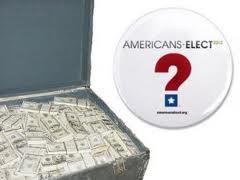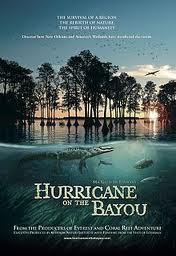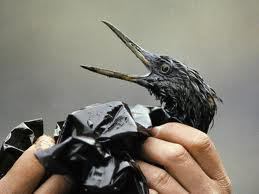Alon Shalev's Blog, page 42
April 24, 2012
What Should We Declare War on Next? – Tom Rossi
America seems to love wars. Not just the war wars, but the wars on this and that, as well. We have the war on terrorism and the war on drugs, these are official, government propaganda. And we also have the Fox “News” variety, like the war on Christmas.
Most of these conceptual wars are either colossal wastes of money that hide their real purpose or they’re just made up baloney.
A lot has been said about what “wars” might be more useful than drugs or terrorism… a war on homelessness, for example. In 2001, 42,196 people died in traffic accidents – over ten times the number of fatalities from our biggest loss to terrorism ever. Why not a war on accidents?
Naaaaah. That’d never fly. Too practical and sensible. In other words, boring.
Let’s have some wars that we can all relate to – wars against the things that really annoy us.
How about a war on awful cell-phone ring tones? I once knew someone with, “I’m a Barbi Girl, ” or whatever that crappy song by Aqua is called. I’d like never to hear that again… ever.
A war on Velcro. When you pull it apart, it sounds like a combination of sizzling bacon and unzipping a zipper – without the satisfaction that inevitably follows either of those things.
A war on noisy neighbors. My upstairs neighbor at my last apartment was evidently a furniture wrestler. That’s what it sounded like! Three falls with a chest of drawers. That’s the only explanation that would fit what I heard almost every day.
Speaking of noise, let’s have a war on ridiculous, thumpin’ and bumpin’ car stereos. How many times have I been listening to the radio or trying to have a conversation when one of these guys pulls up next to me at a stoplight? Sometimes I can actually hear his car falling apart from the vibration. Who are you impressing, buddy? Grow up and get a life.
A war on stupid machines that take away jobs and screw up all the time anyway. I NEVER go to the automated checkout machine at the grocery store. I want them all torn out and burned.
A war on the use of the word “custom” for something you buy off the shelf. Helllllo! It’s not custom if it’s not made specifically for you! The same goes for words like “fresh” or “homemade” on a freakin’ can or frozen dinner. It burned George Carlin up and it burns me up too.

How about a war on that disgusting green hair they always put in salads these days? It’s not lettuce. It’s not spinach. It’s some stringy crap that makes me choke. Again, who are you impressing? Not me.
A war on so-called “reality” TV shows where they pick the biggest pricks they can possibly find to make it interesting and only eliminate contestants who aren’t big enough drama-queens. Yes, I’m picking on Trump again, but there are many more.
I want a war on celery in soup. Almost every damn soup has celery and it’s gross. It makes every soup taste like, well, celery. For those who like it, let’s have a celery soup, and leave it out of everything else.
A war on those stupid, “tribute” shows where they hype up someone like Burt Bacharach as God’s gift to music and humanity. He composed elevator music. The world would look exactly the same if he hadn’t.
A war on the NRA apparently bribing every TV show and even a lot of news broadcasts to show cool women shooting guns for fun. I guess they feel like the male market is pretty much tapped out. I’m more offended by this as a writer than anything else. If you’re a writer on a TV show and someone tells you to work women and guns into a show like “Modern Family,” just say no. Heck, why not use the phrase, “We’ll head ‘em off at the pass!” Hacky writing ticks me off – especially when it seems there are political motives.

A war on car alarms. They go off constantly, especially because of the douchebags that think they’re impressing someone with their loud exhausts (another war!) that drive by creating their own annoyance. They go off so damn often that nobody pays any attention. I’ll tell you what though… If I see someone stealing a car with the alarm going off, I’ll give him directions to the nearest freeway onramp because he is preventing the crime of disturbing the peace by taking the noisemaker away.
Finally, I’d like a war on political advertising. I suppose advertising is a perverse form of free speech, but allowing people and organizations to just lie through their teeth with no consequences is contrary to any kind of democratic value system I can imagine.
These just came off the top of my head. I like wars. I’m going to go declare war on a certain bottlecap right now. It’s been imprisoning a very important beer for too long.
-Tom Rossi
___________________________________________________________________________
Tom Rossi is a commentator on politics and social issues. He is a Ph.D. student in International Sustainable Development, concentrating in natural resource and economic policy. Tom greatly enjoys a hearty debate, especially over a hearty pint of Guinness.
___________________________________________________________________________

April 20, 2012
Juggling Time
Wade Mayer, who manages an excellent blog called Inviting Conversations: Intelligent Dialog Connecting Thoughtful People, posted a question on our LinkedIn Writer’s group. He asked whether we put our family events on our business calenders. In sharing my response, I realized how strongly I feel about the challenges facing achieving excellence in my work, my writing and my parenting.
My response:
Always! The challenge of maintaining a work:life balance is the most difficult juggling act I face. I am inspired by my job and my writing life, both hopefully impact others to create a better world.
Raising two young boys that they might become a positive force for change in the world, and sharing quality time with a life-partner who makes me a better person, demands just as much attention.
I am learning to live with the fact that I cannot promote my novels that are already published, edit the current completed manuscript, and write the next novel, while holding down a full-time (and inspiring) job, and being there for my family.
But it’s hard. I struggled with the usual winter coughs and colds for too long, and I am putting on weight. There are aches and pains that should be attended to. No time to slow down and let the body recuperate.
In the words of Jack Kerouac: “The only people for me are the mad ones, the ones who are mad to live, mad to talk, mad to be saved, desirous of everything at the same time, the ones who never yawn or say a commonplace thing, but burn, burn, burn, like fabulous yellow Roman candles exploding like spiders across the stars, and in the middle, you see the blue center-light pop, and everybody goes ahh…“
On the Road, Jack Kerouac
And I wouldn’t want it any other way!
——————————————————————————————————
Alon Shalev is the author of The Accidental Activist and A Gardener’s Tale. He is the Executive Director of the San Francisco Hillel Foundation, a non-profit that provides spiritual and social justice opportunities to Jewish students in the Bay Area. More on Alon Shalev at http://www.alonshalev.com/ and on Twitter (@alonshalevsf).

April 19, 2012
The Third Choice – Roger Ingalls
We may have a legitimate third choice for President come November 2012. There’s an interesting movement underway giving all registered voters delegate power to select a candidate that will be placed on the presidential ticket. We’ll all have a chance to vote our choice during an online convention.
Before explaining further, I want to point something out about our traditional caucus/primary system that selects who goes on to the presidential ticket. California is the largest economy in the United States and if it were a country, it would be the eighth largest economic power in the world. However, California has no say when it comes to who should be on the Democratic or Republican ticket because the game is over before its primary takes place. For example: Mitt Romney is a virtual lock for the Republican Party but California’s primary is still six weeks away. The people behind the biggest U.S. economy have no choice… that’s ridiculous.
This new movement is called Americans Elect. Their goal is to nominate a presidential ticket that answers directly to the people and not a political system. Their slogan is, “select a president not a party”. To date, they have collected enough signatures in 25 states allowing the candidate selected during the online convention to be placed on the ballot in those states. It is forecasted that the signature quota will be met for all 50 states.
The concept behind Americans Elect is good. Our current process to elect a president is archaic and unfair to many regions of the country. Modernizing the process would save money, create election security and provide real choice and fairness for all. With that said, Americans Elect may be an elaborate setup to split votes in the 2012 election. Some of the original monetary backers behind the movement will not identify themselves. The Democratic Party’s demographic tends to be younger, more educated and open to change so they would be more likely to endorse Americans Elect. Conservatives may not recognize the true value of the movement or, in typical fashion, shy away from change. If only liberals and moderates jump onboard, it would fracture the Democrats and hand the election to the conservatives.
Conceptually, I like what Americans Elect is trying to do. It gives some power back to the people. Below are links to videos and their website. What do you think?
Website http://www.americanselect.org/
Overview http://www.youtube.com/watch?v=CuYKHnAVJ-Y
PBS Report http://www.youtube.com/watch?v=VXPLYCPJnWU
CNN Report http://www.youtube.com/watch?v=qYjnmpBwYd8

April 18, 2012
Saving Nature, Our Natural Defense
A few days ago, I posted A Rude Intrusion, about BP and other multinational oil companies sponsoring an exhibition on the Audubon Aquarium of the Americas, highlighting responsible cultivation of our oceans and wetlands. I spoke about the irony of the company who brought the latest oil spill to our coasts, and ironically the Gulf Coast, taking on this role.
The issue of the disappearing wetlands is an important lesson. During this past trip to help rebuild New Orleans, I learned that the disappearing bayou had served as a natural defense to surge water, what essentially destroyed much of New Orleans. This is chronicled in Hurricane on the Bayou. The bottom line is: had we taken care of this beautiful natural ecosystem, it would have protected the people of NOLA from a Category 5 hurricane.
It is scary that, despite possessing this knowledge, despite the harsh lesson that we were taught from Hurricane Katrina, we are still destroying the wetlands, at the incredible rate of an area the size of a football field is vanishing every 38 minutes.
There are a number of organizations trying to raise awareness and instigate policy that would reverse the trend. Unfortunately, they are not gaining much attention. One such organization was set up in our own San Francisco, by Louisiana natives who have raised funds for a new initiative.
“For the Bayou was founded in San Francisco in 2008 by Louisiana natives to increase public awareness of the disappearing Louisiana coastal wetlands, to foster restoration and protection of this culturally significant coastal environment and to aid and assist the people of Louisiana in the event of a disaster.”
Here is their project:
It costs just $25 to buy and plant a burlap with the grass that can hold the wetlands. For details of how to donate, please click here. Perhaps it is not too late stop the sun setting on the bayou, and by saving this vital ecosystem, save our own beautiful Gulf Coast community and culture.
——————————————————————————————————
Alon Shalev is the author of The Accidental Activist and A Gardener’s Tale. He is the Executive Director of the San Francisco Hillel Foundation, a non-profit that provides spiritual and social justice opportunities to Jewish students in the Bay Area. More on Alon Shalev at http://www.alonshalev.com/ and on Twitter (@alonshalevsf).

April 17, 2012
Moving and Insanity – Tom Rossi
I’ve uncovered the answer to one of the great mysteries of modern American capitalism: The reason that you become less credit worthy if you move your place of residence too often is not that it shows that you’re unstable or unreliable…
It’s because it shows that you’re insane. Why do we do this to ourselves? How do we convince ourselves that some, little concern like proximity to a job, needing extra space, inability to pay your mortgage, or not wanting to be irradiated by a huge bank of “smart” meters is worth the incredible pain in the ass of moving?!?
Each phase of moving is horrible. Sure, at first it seems exciting to look for a new place – it’s like window shopping. But it soon gets old, especially as you realize that you have limited resources and can’t afford the rent/mortgage on your “dream” home.
In fact that’s what haunts the entire process – money. My wife was frustrated with the whole process as we could not seem to find a place with the right combination of proximity to transportation, space, layout, a neighborhood where we would expect not to be shot or stabbed during daylight hours, etc. This was when I observed that it would all be so easy if we just had more money.
The same could be said of the moving process. If we just had more money, we could have hired a moving company to do all the work and my back would still work right.
I don’t really have an alternative system to suggest, but money has really taken over our lives. Our entire worth as human beings is defined by how well we make money. By this measure, the only measure that really seems to count, I am worth at least a million times less to humanity as Donald Trump.
Not only that, but people who bring us television advertisements are worth several times more than the average teacher.
The material world is now our only world. A neoclassical economist would argue that our capitalistic system is simply the nearest approximation to an efficient way to allocate resources. First of all, efficiency doesn’t mean the same thing to an economist as it does to the manager of a bicycle factory. But it’s gone much further than that.
Like I said, I don’t necessarily have an alternative to offer (I’m working on it – don’t hold your breath) but to me earnings have always seemed out of whack. The average pro athlete makes ten times the pay of the average janitor (custodial engineer or whatever is the current, politically correct term). This seems completely backwards to me. I’d play pro hockey for practically nothing, but you’d have to pay me a fortune to clean toilets all day.
And come to think of it, I’m entertained by watching sports, sure. But given the choice, I’d take the lack of pro sports over the lack of clean bathrooms and kitchens. To me, that means that janitors are more valuable than pro athletes. I think a lot of people would agree. If enough people agree, then janitors are worth more to society than are pro athletes.
And because, while I’m certainly annoying, I’m definitely less annoying than Donald Trump, maybe I’m worth more society than he is.

Checks and major credit cards accepted.
-Tom Rossi
___________________________________________________________________________
Tom Rossi is a commentator on politics and social issues. He is a Ph.D. student in International Sustainable Development, concentrating in natural resource and economic policy. Tom greatly enjoys a hearty debate, especially over a hearty pint of Guinness.
___________________________________________________________________________

April 16, 2012
A Rude Intrusion
During our trip to New Orleans we had a day of storms that prevented us from working. We took advantage of the time, frustrating though it was, to visit the Audubon Aquarium of the Americas.
Walking around the incredible displays, watching the otters, seals, penguins, sharks and albino alligator, I imagined sharing this with my boys and how much they would enjoy it. My frustration for not being able to work (we were extremely motivated having come all this way from San Francisco), coupled with seeing all these eager parents showing their kids some nature, while mine were thousands of miles away, began to rise.
 Since there was little point taking my frustration out on either the weather or these families, I needed to direct it on something else…I got my wish.
Since there was little point taking my frustration out on either the weather or these families, I needed to direct it on something else…I got my wish.
I was drawn to the section about the wetlands. On this trip, I have learned that the disappearing bayou had served as a natural defense to surge water, what essentially destroyed much of New Orleans. For a great documentary on this, check out Hurricane on the Bayou. Had we taken care of this beautiful natural ecosystem, it would have protected the people of NOLA from a Category 5 hurricane.
And in case you are wondering, we are still destroying the wetlands, as incredibly an area the size of a football field is vanishing every 38 minutes.
Back to the aquarium and I discover that the wetlands and ocean ecosystem presentation is sponsored by several huge multinational oil corporations, including my old nemeses - British Petroleum - who famously tried their best to silence Left Coast Voices and others who weren’t impressed by their spewing oil into the Gulf Coast.
I browsed through their presentation that firmly told children how important the contribution of the oil companies are to the area, how they are courageously fighting pollution and ensuring the energy needs for the next generation.
There is a great Yiddish word – Chutzpah! It means audaciously outrageous – but chutzpah just says it better (for best results focus on the ch and bring up all the phlegm you can manage). This is the Jewish People’s gift to the world!
I cannot believe that BP and its friends would dare to put such an exhibit in New Orleans, when it has ruined the lives of many of the people who come to the aquarium – actually they probably don’t, since they most likely can’t afford to pay the admission into the place.
The Audubon Aquarium of the Americas claims to be an educational institution for primarily young people. So why does it allow the rich, multinational corporations to rewrite history on its premises? Doesn’t it understand the legitimacy it is giving the oil companies by allowing them to tell their story under their auspices?
The answer is, of course, money. I am sure that BP paid more than 40 pieces of silver, but the value of the transaction hasn’t changed in 2,000 years. Planet Earth, however, has, and dangerously so.
——————————————————————————————————
Alon Shalev is the author of The Accidental Activist and A Gardener’s Tale. He is the Executive Director of the San Francisco Hillel Foundation, a non-profit that provides spiritual and social justice opportunities to Jewish students in the Bay Area. More on Alon Shalev at http://www.alonshalev.com/ and on Twitter (@alonshalevsf).

April 13, 2012
Wanted: A New Publishing Model
The world is changing, and the publishing world perhaps faster than most other businesses. No one seems to be questioning the emergence of the ebook revolution (unlike global warming). It is now accepted that ebooks are providing an appealing purchasing option (and environmental sustainability) that is proving hugely attractive, both to young people (on techno-life support) and older people (who can either change the size of the font or listen to the book read to them).
The ease with which one can now ePublish a book, often without any financial investment whatsoever, has meant that anyone can throw up a book without honing their craft, or having their book suitably edited. Buoyed by the success of a few leading individuals, people are throwing together series’ that will hopefully build a following and declaring themselves authors.
The problem with this ePublishing is that it is difficult to distinguish between those who have worked hard to create a good novel learning and respecting all the legitimate components and those who have not. Many books are riddled with spelling and grammar errors, plot issues, or flaws in character development. In fact, according to Penny C. Sansevieri (Get Published Now), only 1% of independent books published reach the industry editorial standards.
This model serves no one: not the reader, the serious author, or the fly-by-nighters. The reader, even when paying only $0.99 or $2.99, can feel that their money and time have been wasted. The genuine craftsman/craftswoman can’t get him/herself noticed among the mass of ebooks, and the fly-by-nighters get frustrated because they fail to build a following and rake in the royalties.
It is a lose:lose model when it should be exactly the opposite.
Most of those writers involved are not interested (or not good enough) to be picked up by agents and conventional publishers. The time span (often 18 months in production), the lack of marketing help, and the inevitable withdrawal of books that don’t reach performance level in a few short months, doesn’t make the conventional model any the more appealing. John Locke, in his must-read book, lays it out succinctly.

John Locke
We, the authors, need to set our own boundaries and standards, to ensure that readers retain faith in the model and are willing to invest their time and money in a new author.
One way that this can be achieved is through author coops. Authors can join together within genres, edit each other’s work, and market within their niche as a group. Each coop establishes it’s level of craft and marketing. Perhaps the group tithes a percentage of their earnings towards marketing as a group.
If there is a holy trinity of website, blog and twitter as Locke advocates, how much more effective would this be if five authors were expanding this platform in a coordinated fashion?
It would be a tragedy if the ebook revolution faltered because of lack of quality. The technology is good for all readers (except those who read in the bathtub), for the planet, and may well force the conventional publishing world to change their own way of doing business.
Anyone out there writing political fiction and interested?
——————————————————————————————————
Alon Shalev is the author of The Accidental Activist and A Gardener’s Tale. He is the Executive Director of the San Francisco Hillel Foundation, a non-profit that provides spiritual and social justice opportunities to Jewish students in the Bay Area. More on Alon Shalev at http://www.alonshalev.com/ and on Twitter (@alonshalevsf).
April 12, 2012
Gas Prices: Who’s to Blame? – Roger Ingalls
Often, filling stations take the heat for high gas prices but, in reality, your local pit stop doesn’t make much money from the fuel they sell. They make pennies per gallon. Most of their revenue comes from junk food sold out of the attached convenient store. Yes, stations do raise prices minutes after crude oil goes up and then lower the price weeks after oil decreases so they do take a little advantage but that has always been the case. Gas stations are not to blame for the current high price of fuel.
Are oil producing companies or middle-east countries to blame for high gas prices? For the most part, they run their output and let the market dictate the prices. They may vary production levels a little but it hasn’t been a market-driver since the 1970s. Oil suppliers are not to blame.
How about oil refineries, are they the evil ones? Back in 2008, oil peaked at $147 a barrel and gas prices rose to about $4.30 a gallon. Now, in early 2012, gas prices are again hitting the $4.30 range but oil is trading at approximately $105 a barrel. Something seems fishy. Oil is 30% less now than in 2008 but current gas prices are the same. Also, we now use 17% less gas than we did in 2008; it doesn’t add up. Demand is down, crude oil prices are lower but fuel prices are higher!
US oil refineries are to blame for the current increase in gas prices. They created an artificial shortage by reducing their refining capacity to 85% of what it was in 2008. The refineries say they had to close down some refineries because the crude oil quality has made some of their production capacity obsolete. It is unbelievable that companies making record billions in profits cannot keep up with the required technology in their own industry. I believe this excuse is a flat-out market manipulating lie. These big companies are not that stupid; they know what kind of oil they’re getting years in advance.
When gas hits $8 per gallon in a year or two, you can blame deregulating legislation that now allows reckless speculation (futures trading of oil) and the elimination of alternative energy programs by Ronald Reagan in the 1980s. However, the current high price of gas falls squarely on shoulders of US oil refineries.

Gas Prices: Who's to Blame? – Roger Ingalls
Often, filling stations take the heat for high gas prices but, in reality, your local pit stop doesn't make much money from the fuel they sell. They make pennies per gallon. Most of their revenue comes from junk food sold out of the attached convenient store. Yes, stations do raise prices minutes after crude oil goes up and then lower the price weeks after oil decreases so they do take a little advantage but that has always been the case. Gas stations are not to blame for the current high price of fuel.
Are oil producing companies or middle-east countries to blame for high gas prices? For the most part, they run their output and let the market dictate the prices. They may vary production levels a little but it hasn't been a market-driver since the 1970s. Oil suppliers are not to blame.
How about oil refineries, are they the evil ones? Back in 2008, oil peaked at $147 a barrel and gas prices rose to about $4.30 a gallon. Now, in early 2012, gas prices are again hitting the $4.30 range but oil is trading at approximately $105 a barrel. Something seems fishing. Oil is 30% less now than in 2008 but current gas prices are the same. Also, we now use 17% less gas than we did in 2008; it doesn't add up. Demand is down, crude oil prices are lower but fuel prices are higher!
US oil refineries are to blame for the current increase in gas prices. They created an artificial shortage by reducing their refining capacity to 85% of what it was in 2008. The refineries say they had to close down some refineries because the crude oil quality has obseleted some of their production capacity. It is unbelievable that companies making record billions in profits cannot keep up with the required technology in their own industry. I believe this excuse is a flat out market manipulating lie. These big companies are not that stupid; they know what kind of oil they're getting years in advance.
When gas hits $8 per gallon in a year or two, you can blame deregulating legislation that now allows reckless speculation (futures trading of oil) and the elimination of alternative energy programs by Ronald Reagan in the 1980s. However, the current high price of gas falls squarely on shoulders of US oil refineries.

April 11, 2012
An Unsettling Conversation
It was not the setting where I would expect such a conversation. It was a Jewish philanthropy meeting and most of the people that I had addressed were there because they had money and were generous to the causes that moved them.
The meeting was over and we were drinking and eating around the buffet table when a well-dressed man approached me and asked whether students were involved with the Occupy movement.
What ensued was a discussion of the merits of the Occupy movement and the Tea Party. This man was a democrat and only used the Tea Party to illustrate a well-oiled machine – with money, a single message, and leadership.
But then he turned his attention to the Occupy movement. He talked about the need for leadership and a clearly defined agenda. I was not looking for such a discussion, we have covered it considerably on Left Coast Voices – search occupy in our search engine – and I was wary of my role at this meeting. But he caught my attention with his next thought.
The window of opportunity is closing he said. Once the weather improves, we will not be able to hide behind this excuse. Then he mentioned the upcoming elections. It would be inexcusable, he said, if the Occupy movement did anything that hurt the Democratic drive for Congress and the White House. I have offered my thoughts on this here.
But I want to finish with this thought. He spoke about the one achievement (not sure that it has been fully realized) is that the banks now understand that they serve the people and need the people.
The next step, he said, was to apply this accountability to the politicians. In his work, this man evaluates and promotes or fires his employees. Why are we not doing this with Congress? Why should they care that their rating is a pathetic 11%? They do not hold unique skills and there are many who would be happy to take their places.
He would like to see a credible forum that evaluates the politicians, decides whether they achieved the goals we voted them in to do (or at least made a serious effort to do so), and give them a public grade. Anyone who brings in a low grade gets fired. Unlike his business, we have a legitimate and open opportunity to send politicians who do not perform home every four years.
I asked him whether there was an organization that did this. He replied that the only people he knows are the Tea Party.
Can we not build a broader base that offers more objective data to the 99%. There might not be much in the way of equality these days, but if 99% vote according to a performance evaluation, we will see a lot of new faces on C-Span, and they will be more aware that we are carefully watching them.
——————————————————————————————————
Alon Shalev is the author of The Accidental Activist and A Gardener's Tale. He is the Executive Director of the San Francisco Hillel Foundation, a non-profit that provides spiritual and social justice opportunities to Jewish students in the Bay Area. More on Alon Shalev at http://www.alonshalev.com/ and on Twitter (@alonshalevsf).
























